Ulex Project trainings support a number or organisations across Europe who are pushing for change in a variety of different contexts. For the first in a series of Project Partner Spotlights we speak with Ekaterine Gejadze, Project Coordinator from Women’s Fund in Georgia (WFG), an organisation which has been successfully working to improve and defend women’s rights and gender equality in Georgia since 2005.

Tell us a little bit about Women’s Fund Georgia. What does the organisation do and what types of groups do you work with?
Women Fund in Georgia (WFG) is a local grant-making organisation supporting women’s rights groups, organisations and individual activists pushing for social change through financial resources, capacity building and by promoting the culture of feminist philanthropy. For over 10 years, WFG has awarded over 500 grants nationwide, and organised over 100 local and international fundraising events. WFG’s target groups are mostly groups of marginalised women who live in rural areas, women with disabilities, LBT women and young women and girls. WFG is one of the few local foundations in Georgia openly supporting LGBTQI groups and using a feminist/women’s rights based approach to its work. It is also an activist fund and not only supports the women’s movement, but is also a part of actively shaping it. WFG contributes to movement building by supporting women human rights defenders (WHRDs) whose work and commitment are not acknowledged and valued in Georgia. WFG has made steps forward in recognising the significant work of these defenders by establishing the Kato Mikeladze Award, to take place every year, on an international day of WHRDs, November 29. This award is a great motivation for both women’s rights defenders and for the general public to start valuing and supporting the important work of WHRDs and feminist activists.
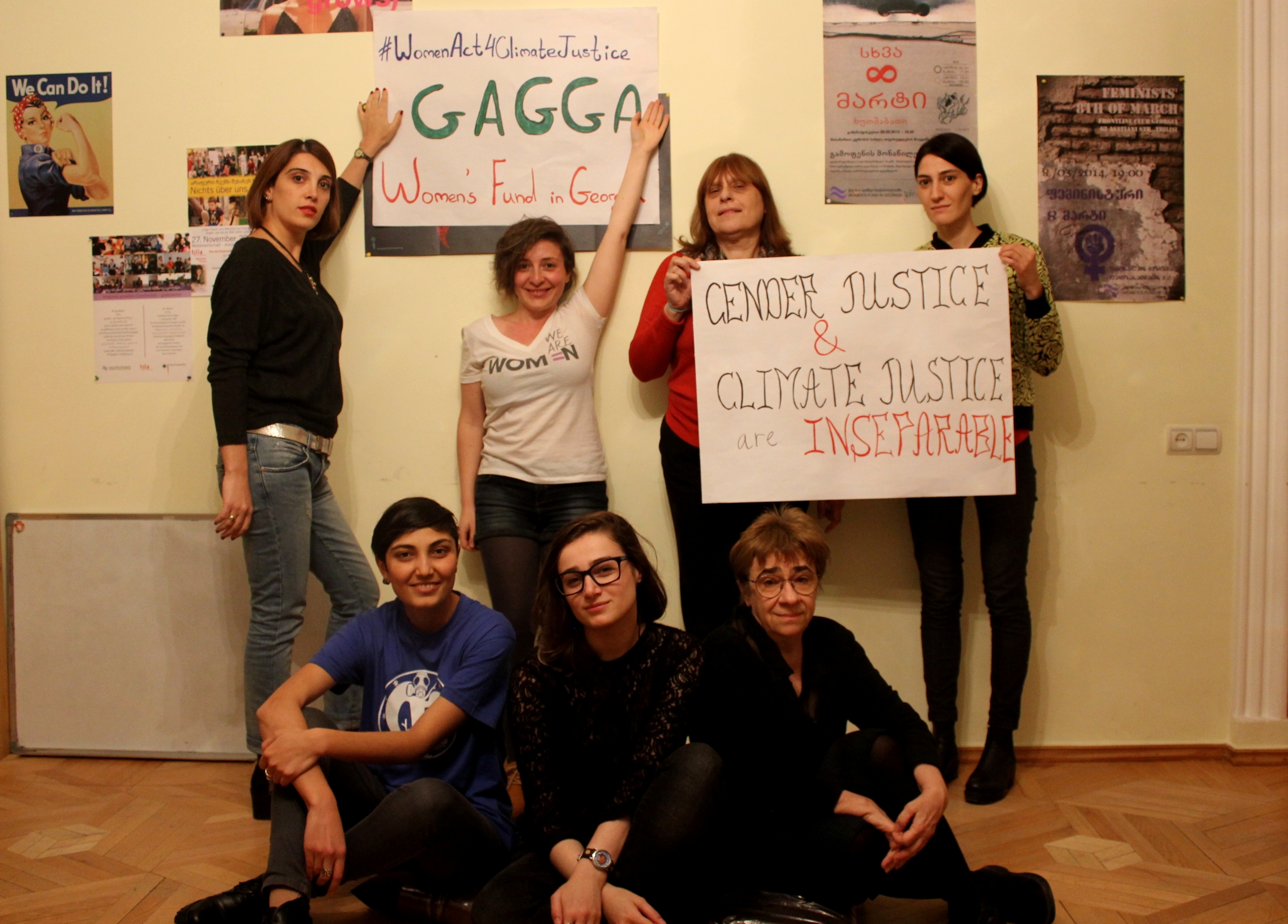
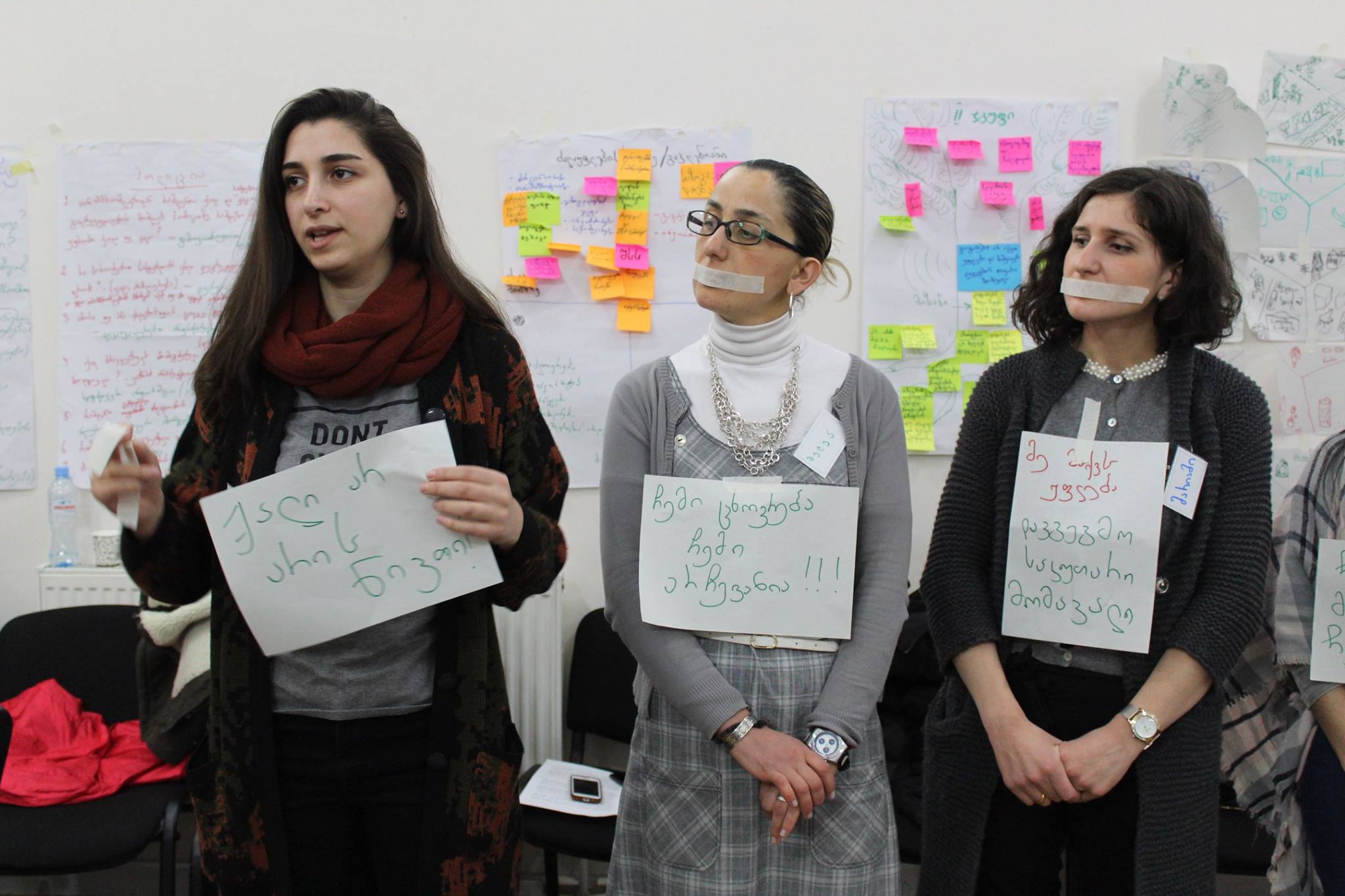
Women’s Fund in Georgia has a track record of successful work on improving women’s rights and gender issues since 2005. WFG provides financial support to new and existing women’s groups, to promote the expansion of the women’s organisations in the regions, to directly resource the many underfunded areas of women’s rights, and to reach out to women in remote areas of Georgia. Women’s Fund in Georgia contributes to the financial stability and sustainability of women’s rights activists in Georgia and gives voice to marginalised women’s groups and underfunded populations. It supports women’s legislative actions, campaigns and manifestations, awareness raising trainings, workshops and seminars, artistic advocacy initiatives as well as research and documentation of women’s rights issues in Georgia.
What about you – what’s your role at WFG, and how long have you been there? What inspired you to do this kind of work?
Since 2013, I have been working for the Women’s Fund in Georgia as a Program Coordinator. I am responsible for WFG’s overall program coordination, proposal development and donor relationship building. I lead and supervise the Fund’s programs that focus on the protection of women human rights defenders, violence against LBT women, protection of women’s sexual and reproductive health and rights, and also coordinate the program on women’s rights and environmental justice with an aim to build cross-movement collaboration. I organise trainings in digital and integrated security specially designed for activists and women human rights defenders. I am also involved in organising the annual Kato Mikeladze Award for WHRDs for recognising and valuing their work and contribution to the women’s movement. I represent the Fund at the international meetings and conferences and work closely with other women’s funds from Europe and with broader donor agency.
I have been involved in the field of women’s rights for seven years now. I have an MA degree in Gender Studies from the Central European University (Budapest, Hungary). I started doing a PhD also in Gender Studies in Tbilisi, in 2013, but I am on academic leave for now. In addition, I am a member of Independent Group of Feminists, which is a non-hierarchical, informal feminist collective here in Georgia.
Why is this work important in Georgia? How does the current political landscape hinder women’s rights? What are some of the main challenges?
To briefly outline the context, it is important to mention that since the collapse of the communist regime in the beginning of the 90s the government of Georgia undertook a number of important obligations to improve the status of women, including ratification of the Convention on the Elimination of All Forms of Discrimination Against Women and elaboration of National Action Plans to achieve gender equality. In the course of the past years, Georgia adopted the Anti-discrimination Bill (2014), the Law on Gender Equality (2010) and the Law on Prevention of Domestic Violence (2006) and the Law against Trafficking. In line with this, Georgia maintained a more or less liberal legislation on reproductive rights, abortion, and family planning.
However, there is a huge discrepancy between the country’s official gender equality strategy and the real situation of women and girls. The legislative gains made in the past two decades were accompanied by a growing backlash against women’s rights and gender equality. As a result of the conservative backlash and resurgence of traditions and customs in Georgia, women still face such problems as exclusion from public and political life, violence against women, gender stereotypes and rigid gender roles, along with marginalisation of women representing ethnic and religious minority groups, oppression of lesbian, bisexual women and trans people, stigmatisation of women with disabilities, ignorance towards rural and internally displaced women’s needs, etc. This is very much connected to the raise of nationalism and religious fundamentalism as a Georgian citizen’s national identity has become strongly linked to the traditional Orthodox Christianity.
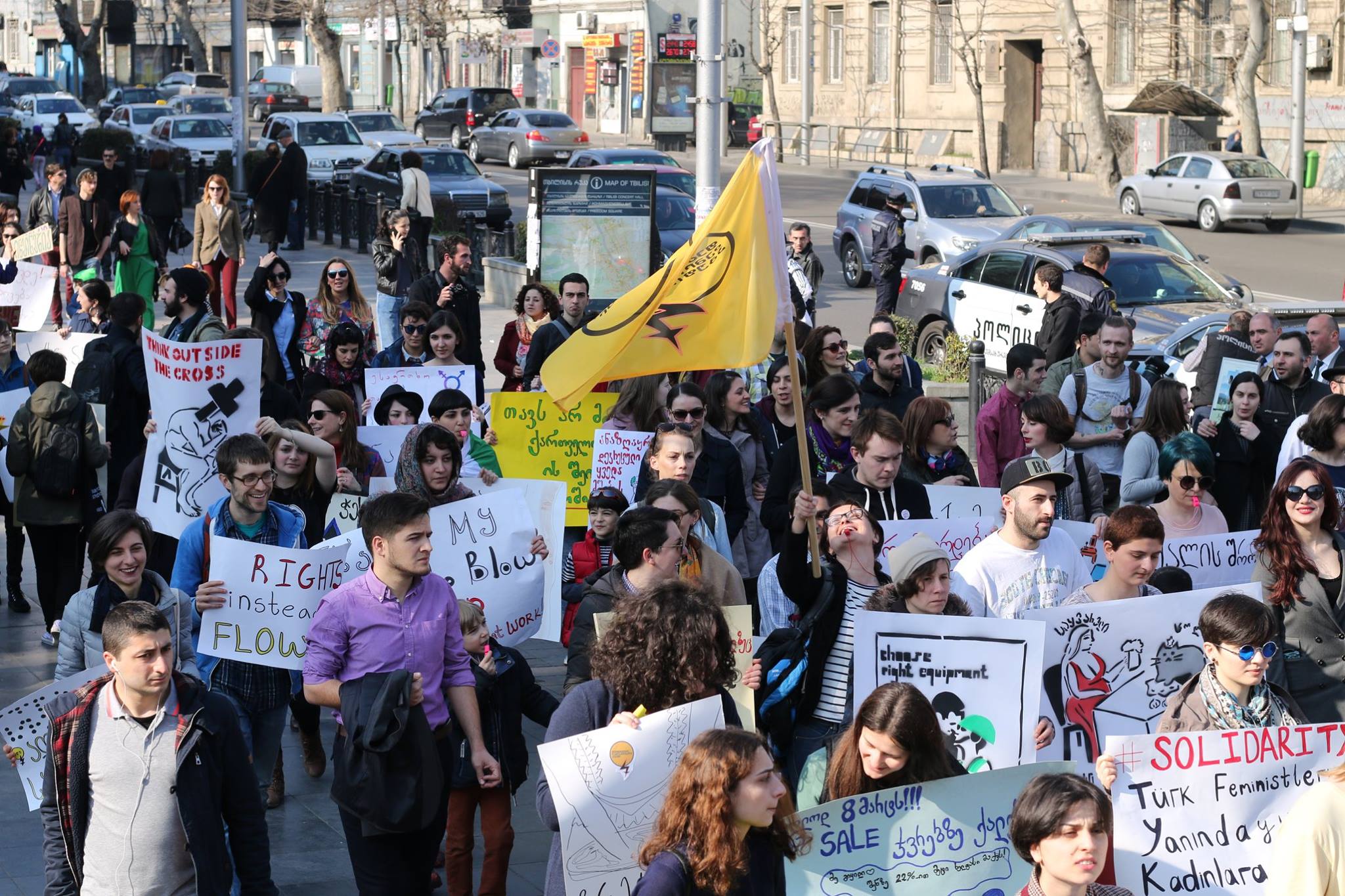
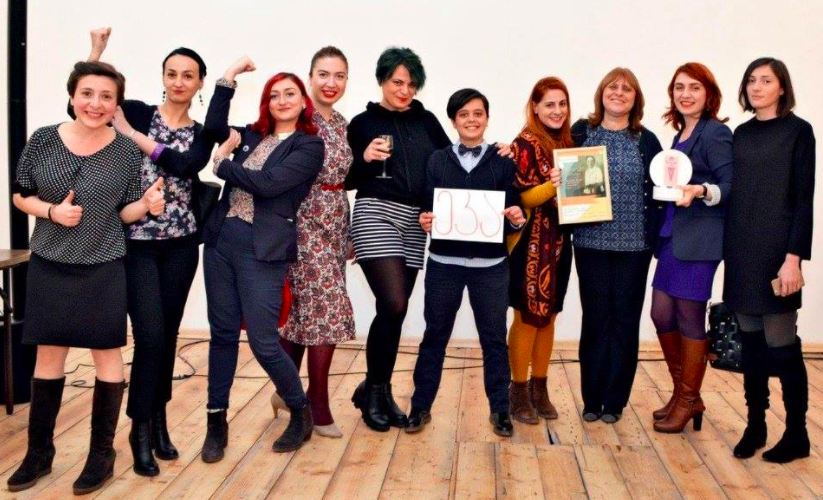
In addition to this hostile environment, the situation of WHRDs and activists is further hindered by various factors, among which are constant shifts in the funding landscape that often translate into less resources for women’s human rights’ organising. Almost 10 years of evidence and experience showed WFG that women’s rights groups and activists in Georgia lack access to flexible and stable funding that would be responsive to their needs and guarantee a level of sustainability. Although important gains have been made by women’s rights groups during the past two decades, the current backlash can really undermine maintenance of past gains and make future success even more difficult and unlikely. The women’s rights organising in Georgia needs investment into various types of resources in order to develop into a strong movement that can sustain its impact in spite of the conservative backlash and attacks on women’s human rights. More recently, there has an emergence of young feminist activists and new collectives that are more political in their actions and ideology than some of the more well-established organisations and activists. This emerging wave of women’s human rights defenders and activists urgently need to be able to address the safety, security and sustainability of their activism.
Women’s Fund in Georgia believes that a complex approach has to be deployed in order to address such multifaceted and multi-layered problems. A consolidated approach by feminist activists can tackle these problems effectively if various coordinated strategies are used with a strong emphasis on structural social change vs. service provision to “victims”. This can be achieved through a strong feminist movement, which needs investment and contributions from a new wave of activists as well as cross-sector collaborations.
What is your favourite thing about the work that you do?
My favourite thing about my job is the opportunity and freedom to design the Fund’s programs and activities using creative and innovative methods, which gives me the feeling of moving forward, developing new perspectives and strategies around women’s issues in Georgia. I have been involved in creating a feminist radio program – “FeminStream” – hosted by feminist activists focusing on taboo and controversial issues in Georgia. It is very exciting that we are re-launching the program, this time through online podcasts, and focusing on feminist art and culture, with a crew of amazing new hosts speaking about a range of very interesting topics. Another exciting thing which I am involved in right now is organising a Feminist Festival in Kutaisi, honouring the 100 year anniversary of the first feminist newspaper in Georgia. Also, at the moment, I am organising a Training of Trainers in Sexual and Reproductive Health and Rights (SRHR), with a focus on women’s sexual rights, freedom of self expression and sexual desire beyond heteronormative framework, which will be conducted by a group of professional trainers in SRHR from Romania.
In addition to all this and other projects, one of the exciting things I do at the Fund is connecting different donors, networks and activist groups to one another. For instance, it’s been already two years that on behalf of Women’s Fund in Georgia, I am a referral partner of Stars Foundation (Win and For Girls Award), providing references for various local women’s rights groups to apply for their grants.
How do you stay inspired in difficult times? What’s your own personal way of keeping a check on burn-out?
It is very difficult for me to stay inspired in difficult times. I am a Highly Sensitive Person (HSP), which means I am an emotionally extremely sensitive person with high ability to empathise with others and with a tendency to be overwhelmed easily. For me, as an HSP activist, it is very hard to cope with stress, but I try to develop some strategies to avoid burn-out. So far, regular visits to a therapist have been helping me to fight personal and work-related stress. Meditation, physical exercise, alongside the tools learnt during integrated security workshops also help me to stay on track.
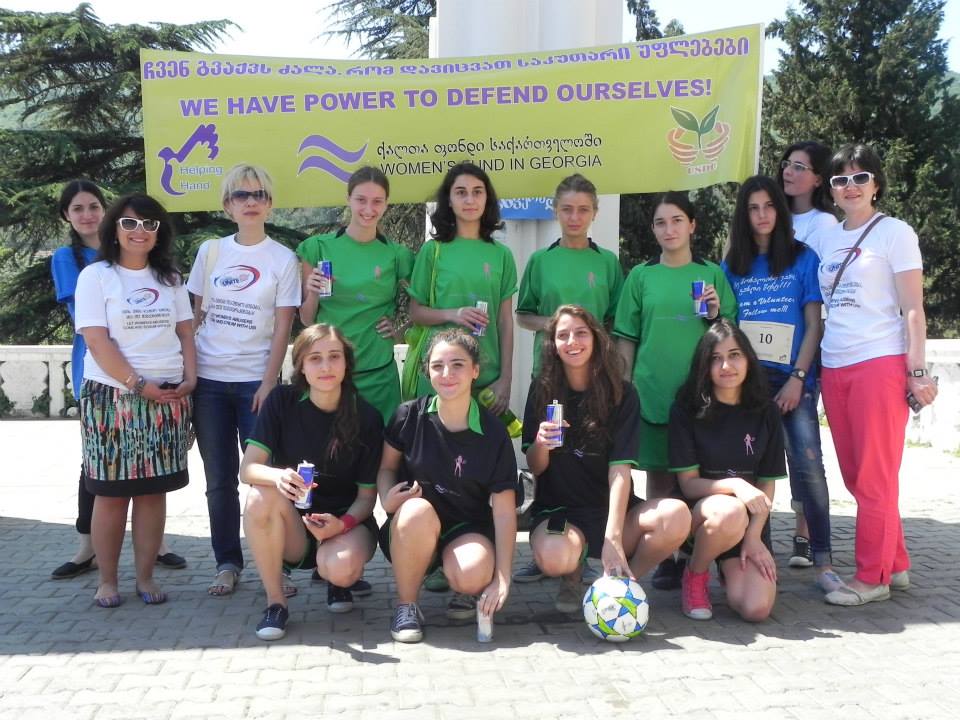
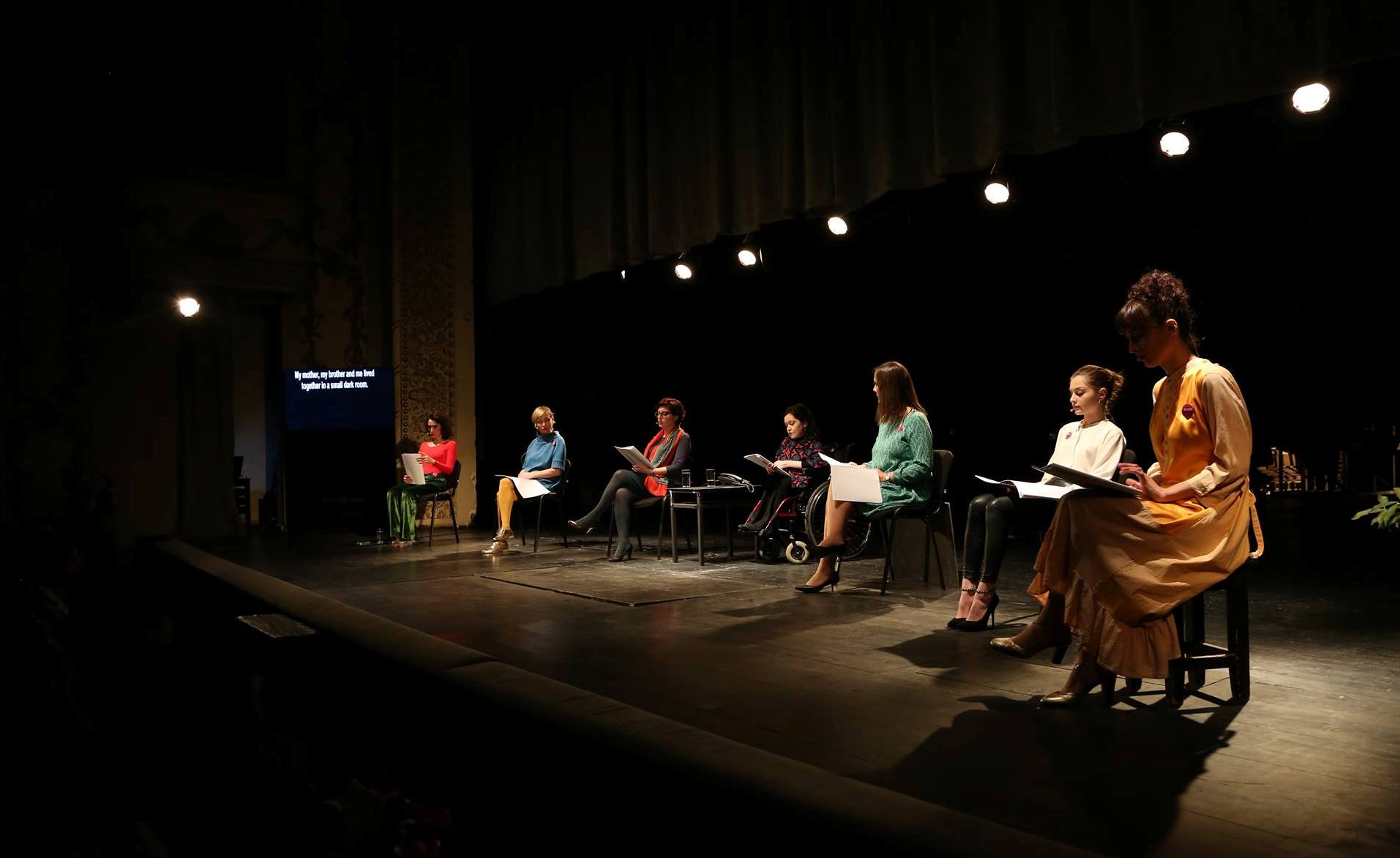
Tell us a bit about WFG’s own internal training and professional development programme. How do you support a culture of self care and ongoing learning to flourish?
Since its establishment, Women’s Fund in Georgia has taken significant steps to support WHRDs and activists in Georgia. From 2009, the Fund has been implementing a Rapid Response Grants program for creating secure environment for feminist activists. Since 2011, WFG has been working closely with the international trainers group who provide Integrated Security Workshops designed for WHRDs and activists. Since then, every year WFG offers the workshop to activists. Integrated Security Workshops aims to identify the risks, threats and problems that we face in activism and develop the strategies to handle these problems and avoid burn out.
Women’s Fund in Georgia has also organised a Training of Trainers in Digital Security which support Frontline Defenders and Technical Tech, exclusively for women human rights defenders from Georgia and Armenia. The goal of the training was to support local activists in gaining knowledge and the necessary tools to work in the field of digital security and human rights, and to create local support group in order to train and assist other activists in the region. It is the first time in Georgia that women’s rights defenders have had such an opportunity and it is great achievement that we now have local trainers, who can train other activists how to better protect their sensitive information and online communication in order to defend themselves from hackers or any other online threats or attacks.
Last year a group from Women’s Fund in Georgia participated in Ulex Project trainings. How did the training support your work and that of the organisation?
One of the exciting initiatives that WFG is currently developing aims to provide a protected, secure space in Georgia for feminist/queer activists, which will be a unique place within the Caucasus, Eastern Europe and Central Asia. Such a space will strengthen activist resilience, individually and in groups, and will stimulate the regional women’s movement, whilst also decentralise and promote the sustainability of feminist activism. The Fund has started constructing the centre on its own land located in Kakheti region. What’s exciting about the construction is that its ideals are based on the principles of Permaculture, which is regenerative and self-maintained agricultural system modelled from natural ecosystems. The centre is being built with environmental friendly materials using straw-bale, for instance.
WFG staff, together with other environmental activists from Georgia participated in Ulex Project trainings last year. The training served two purposes: to learn more about the principles of Permaculture, nature and ecology, and to familiarise ourselves with the experience of Ulex as a a self-sustainable centre of learning and training. The visit was very productive and inspiring for us and we believe it is very important to create such places where activists from various backgrounds, contexts, campaign focuses and skills can come together. As part of the WFG and wider activist community from Georgia we are happy to participate and support this ongoing work.
Thanks to Eka and all at Women’s Fund in Georgia. To find out more about Ulex Project trainings check our course programme.